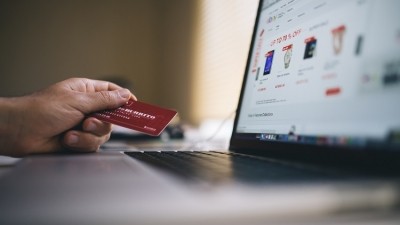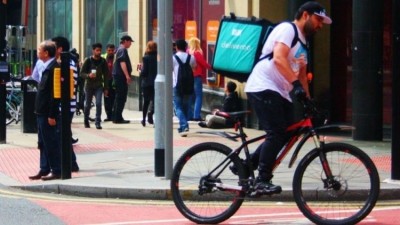Technology: How pubs can take advantage of mobile phones

Two thirds of UK consumers now own a smartphone, according to data from Ofcom.
With so many people carrying around what is basically a handheld computer, it has become crucial for pubs to take advantage of this digital touchpoint.
However, the technology marketplace can be confusing. Some services help businesses at the point of sale with ordering, service delivery and accelerated payment, while other platforms help with booking, human resources and financial management. So how can they be integrated to provide valuable customer insight for pubs?
With so many sources of customer data flowing into a pub’s electronic point of sale (EPoS) system, the challenge is that there can be too much information.
One company tackling this is technology firm Zonal, an EPoS tech provider. It was ahead of the curve in integrating its EPoS data services and is now a ‘gateway’ service for integrating mobile apps. Currently it is focusing on how pubs can use these large amounts of integrated EPoS customer data to gain a competitive advantage.
Zonal sales and marketing director Clive Consterdine says: “What makes this [EPoS] data even more powerful is to understand where else customers go, and what drives them to visit – adding an additional layer of insight to highlight the threats and opportunities to your business. Data-driven marketing means pubs can shape their marketing strategy based on real intelligence about their customers’ habits, likes and dislikes, leading to a whole new world of personalisation.”
‘Big data’ research
This could mean, for example, changing menus to suit customer requirements. And customers’ partiality for a personalised offer is borne out by recent research into ‘big data’ conducted by the firm. It found that 79% of consumers sign up to a loyalty programme with an instant offer and 40% claim personalised offers would win their ongoing loyalty to an outlet.
Smartphone touchpoints, such as ordering and booking apps, can also improve the customer experience and prompt return visits, says Daniel Potter, chief executive of Ordamo, which provides management platforms and tablet menu and self-service systems.
“As a customer, I might make a reservation by phone. When I arrive at the pub, my phone pings and my booking is engaged, the host station is alerted and they or the system automatically assigns me a table. I can then view the menu and order through my phone, or an in-site device. After placing my order, it can be reviewed by the waiting staff and sent directly to the EPoS, kitchen and bar with any notes or amends.”
An added benefit for the pub, says Potter, is it is simple and requires minimal data entry by staff. However, there has been concern that mobile payment apps can devalue the social and community element of a venue, where engagement with customers over the bar is an important part of the experience. Others would argue that a faster, streamlined service using technology can be a key driver of customer loyalty.
And there is no doubt about its potential for collecting customer data. The appeal is obvious for city-centre sites, where speed of service is more valued than interaction with staff.
Drive return custom
A market leader in this sector is Flypay, which sees integration of mobile apps with EPoS as the launch pad for pubs to take advantage of customer data to drive return custom. But Flypay chief executive Tom Weaver says it isn’t necessarily a straightforward journey, which is why the company has developed a service to assist operators.
“A brake on innovation for pubs is that integration with existing EPoS systems and subsequent configuration of sites is complex and time consuming.”
Weaver says integration services like the one Flypay provides – Flyt – are about ‘laying digital railway tracks’ for operators. There are trains running on these rails, delivering orders into the EPoS, and other trains extracting data for use elsewhere in the business, such as table management, analytical tools, CRM and consumer-facing services.
He said: “Rather than all parties carrying out the same integrations company by company, which slows down the provider and the tech company, this can be achieved through one platform to speed up the process.”
Weaver believes future-proofing is vital as is looking at the age of your current tech. “Pub operators need to ask: ‘How long ago was my last EPoS system installed?’ and ‘How long do I expect the current generation to stay?’” Normally we see a good 10-year purchasing lifecycle, for example, 10 years ago there was no iPhone, he says. It’s worth thinking about what tech will be pervasive five years from now.
Potter from Ordamo agrees: “Currently, the majority of pub operators don’t have integrated systems. What they do have is one system for reservations, EPoS, payment, HR, training and accounts, together with another for stock control. This is an immense drain on resources for pub operators and completely unnecessary.”
However, he says this is all about to change. “What we’ll start seeing is a single interface, where a username and password can access all employee information, check reservations, review last night’s takings, check staff performance reviews and training, while also assessing monthly management accounts and stock levels across all sites.”
Keep up with trends
There is a potential pitfall to this approach. Today’s technology is always yesterday’s news – and keeping up with the current trend can be “impossible” according to Kevin Greene international product manager at CBE software.
He said who you work with on digital transformation is key. “In the time it takes a pub operator to adopt a new solution, there is already an update in motion or new entrants to the market.
“To remain a step ahead, pub operators should look to work on a collective, open platform with an EPoS partner willing to adapt to change, adopt new technologies and ultimately, grow with your business, as times inevitably change.”
But it’s tough for smaller operators to get this kind of tech. However, there are services specifically for single-site licensees and smaller multiples.
Intelligentpos by iZettle has focused its order and payment app on creating loyalty points for customers’ favourite pubs on every transaction they make. This tool is marketed to the smaller operator, enabling them to compete in a local marketplace with bigger managed pubcos, which may have powerful technology suppliers, central marketing teams and access to free marketing material.
Intelligentpos general manager Graeme Horsfall said: “[These apps] can open up sales channels, help smaller operators reclaim their neighbourhood and successfully trade alongside bigger corporations. Small business owners can increase customer happiness while gaining invaluable data that can be used in targeted marketing campaigns.”
Build the right team
Technology can also help build the right team. One app, called ‘Placed’, focuses on how loyalty is created through the staff experience – and aims to draw together the right staff for venues to keep customers coming back.
Co-founder of the recruitment app Natalie Chassay says: “The technology enables venues to connect with candidates who are suitable for their needs, which ensures that expectations on both sides are matched and fulfilled.
Recruitment aside, much of the main focus has been on the transaction, but collecting data around orders isn’t the only way to drive return custom.
Digital marketing tools, such as Wireless Social used by Wadworth and Bierkeller, collects and analyses social data via guest Wi-Fi logins to create marketing campaigns based on customer behaviour and personal details. For example, personalised rewards and trigger coupons such as a birthday offer.
An obvious concern regarding this kind of technology is its potential to feel intrusive, so it is important customers are aware they may be sharing their data when they log on to guest Wi-Fi. If they are not, it could damage relationships rather than encourage returns.
The biggest advantage of being able to access this customer data is its accuracy, as it can be as much as 98% correct. Primary email addresses, chosen or preferred names, ages, likes and favoured social connects are all captured.
Profit from technology
Pubs can even profit directly from using technology by allowing a partner to sponsor their Wi-Fi access. Called Ethernet Real Estate by Wireless Social, a pub can share the value of its Wi-Fi’s data set with a sponsorship partner, who gains access to it through a commercial agreement.
Some are already doing this with one notable example being Thai Leisure Group, which has teamed up with Singha Beer. The benefit for the sponsor is it can target a relevant customer base to share product information.
And you can’t ignore the rise of home delivery apps, which are now open to pubs. Establishments are using these courier services to sell more food and reach a new customer base beyond the physical site.
First into the UK marketplace was Deliveroo, and now there is UberEATS – an extension of the popular car-sharing app, delivering fresh food to your door within 30 minutes. Mathieu Proust, head of expansion at UberEATS, says it works well for customer retention.
Aside from the cash benefits of selling food for home delivery on a quiet night, with no additional overheads, pubs can reap benefits in brand extension, he says. “It’s about feedback – each customer can comment and give you instant customer views on dishes.
“And it means that customers you wouldn’t normally reach can find out about your offer, so it’s a great means of marketing. After all, someone who uses the app may have never been to your venue but, having had food by home delivery, may choose the next time to come into your venue with friends.”
Whatever tech you choose to use, the future is obviously digital. There is no reason why that most historic of hospitality venues – the pub – can’t be at the forefront of technological evolution.







